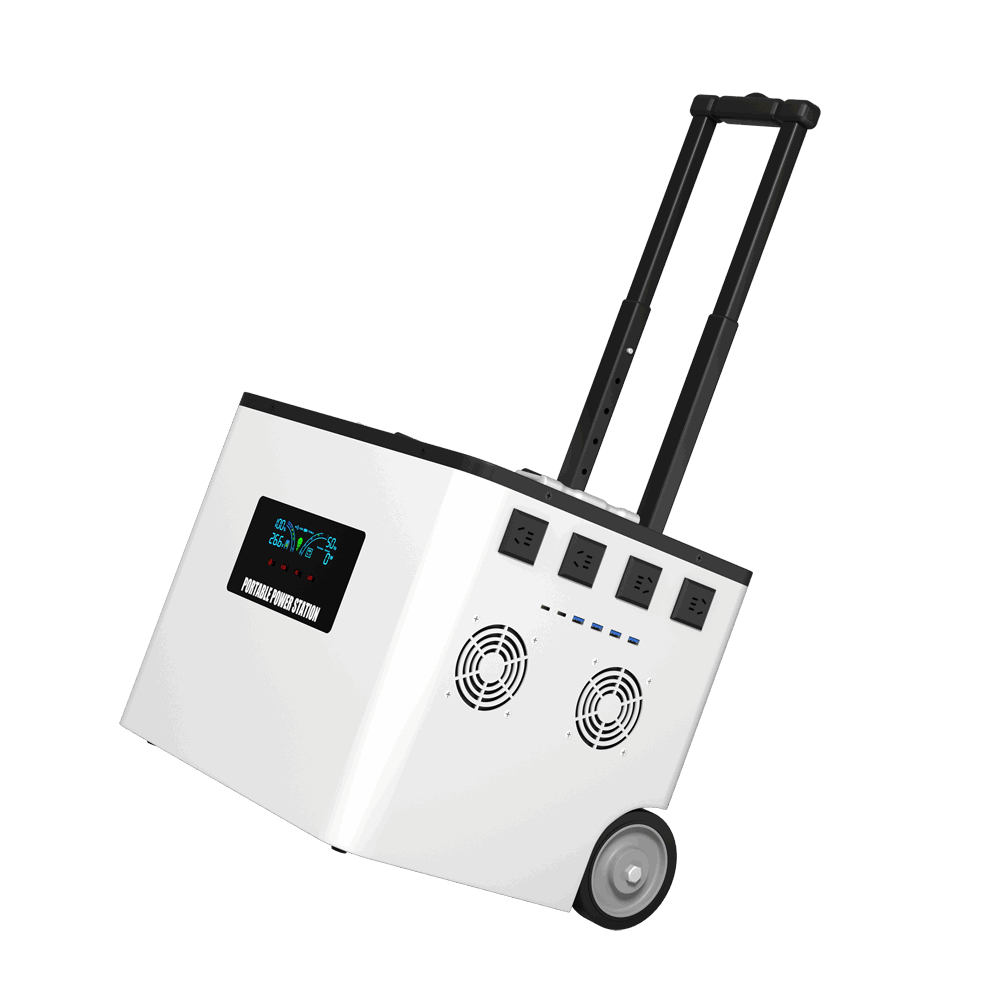Inverter or Power Storage Station: Which is the Best Fit for Your Energy Needs?
In an era where reliable and sustainable energy solutions are paramount, understanding the differences between inverters and power storage stations is crucial for optimizing your power management. Whether you’re preparing for an off-grid lifestyle, planning outdoor adventures, or safeguarding your home during emergencies, selecting the right power solution can make all the difference. This blog will explore the features, benefits, and ideal applications of inverters and power storage stations, with a special emphasis on the **JumboEco power storage station**, to help you make an informed choice.
What is an Inverter?
An inverter is an electronic device that converts direct current (DC) from sources like batteries or solar panels into alternating current (AC), the standard form of electricity used by most household appliances. Inverters are commonly used in scenarios where AC power is required but only DC sources are available, such as in RVs, boats, or off-grid homes.
How Does an Inverter Work?
Inverters transform the unidirectional flow of DC electricity into the alternating flow of AC electricity, enabling the use of standard appliances. There are three main types of inverters:
– **Pure Sine Wave Inverters**: These produce a smooth and consistent AC output, ideal for sensitive electronics like laptops and medical devices.
– **Modified Sine Wave Inverters**: These are more affordable but produce a less refined output, which may not be suitable for all devices.
– **Square Wave Inverters**: These are the most basic and are typically used for simple applications like powering small motors.
Advantages of Inverters
– **Versatility**: Inverters can be paired with various DC power sources, such as solar panels, car batteries, or standalone battery systems.
– **Efficiency**: Modern inverters are highly efficient, minimizing energy loss during the conversion process.
– **Scalability**: Inverters can be integrated into larger energy systems, making them suitable for both small and large-scale applications.
Drawbacks of Inverters
– **Dependency on External Power Sources**: Inverters require a separate DC power source, such as a battery or solar panel, to function.
– **Complex Setup**: Integrating an inverter into an energy system can be technically challenging, especially for those without electrical expertise.
– **Limited Portability**: Inverters are generally less portable due to their reliance on external components.
What is a Power Storage Station?
A power storage station, also known as a portable power station or battery generator, is an all-in-one solution designed to store and deliver electrical power. Unlike inverters, power storage stations come with built-in batteries and multiple output options, making them a convenient choice for a wide range of applications. Among the leading options in this category is the **JumboEco power storage station**, which combines advanced technology with user-friendly design.
How Does a Power Storage Station Work?
Power storage stations store electrical energy in an internal battery and deliver it through various outlets, including:
– **AC Outlets**: For powering household appliances like refrigerators or microwaves.
– **DC Outlets**: For devices that require direct current, such as car chargers.
– **USB Ports**: For charging smartphones, Tabletten, and other USB-powered gadgets.
Many power storage stations, including the **JumboEco power storage station**, also feature built-in inverters, allowing them to convert stored DC power into AC power seamlessly.
Advantages of Power Storage Stations
– **Convenience**: Power storage stations are designed for ease of use, requiring minimal setup and maintenance.
– **Portability**: Devices like the **JumboEco power storage station** are compact and lightweight, making them ideal for camping, outdoor events, and emergency preparedness.
– **All-in-One Solution**: With built-in batteries, inverters, and multiple output options, power storage stations provide a comprehensive power solution without the need for additional equipment.
Drawbacks of Power Storage Stations
– **Limited Battery Capacity**: The amount of power a storage station can provide is constrained by its battery size, which may require frequent recharging for high-power devices.
– **Higher Initial Cost**: High-quality models like the **JumboEco power storage station** can be more expensive upfront compared to standalone inverters.
– **Charging Time**: Recharging the internal battery can take several hours, depending on the charging method and capacity.
Inverter vs. Power Storage Station: A Detailed Comparison
When deciding between an inverter and a power storage station, it’s essential to evaluate your specific needs and circumstances. Here’s a detailed comparison to help you choose the right solution:
1. Power Source
– **Inverter**: Requires an external DC power source, such as a battery or solar panel. It’s a great option if you already have a DC power system in place.
– **Power Storage Station**: Comes with an integrated battery, offering a self-contained power solution. The **JumboEco power storage station**, for example, can be charged via wall outlets, car chargers, or solar panels, providing greater flexibility.
2. Portability
– **Inverter**: Generally less portable due to its reliance on external components like batteries and solar panels.
– **Power Storage Station**: Designed for portability, making it perfect for on-the-go use. The **JumboEco power storage station** is lightweight and easy to transport, ideal for outdoor adventures or emergency situations.
3. Ease of Use
– **Inverter**: Can be complex to set up, especially when integrating with solar panels or other energy sources.
– **Power Storage Station**: User-friendly and straightforward, requiring minimal setup. The **JumboEco power storage station** is particularly intuitive, making it accessible even for non-technical users.
4. Power Output and Usage
– **Inverter**: Power output depends on the inverter’s specifications and the connected DC power source. It can handle a wide range of devices, from small electronics to large appliances.
– **Power Storage Station**: Power output is limited by the battery capacity. While the **JumboEco power storage station** can power most household devices, it may not support high-power appliances for extended periods.
5. Cost
– **Inverter**: Generally more affordable, especially if you already have a DC power source.
– **Power Storage Station**: Higher upfront cost due to the built-in battery and additional features. However, the **JumboEco power storage station** offers excellent value for money with its advanced technology and versatility.
—
Choosing the Right Solution for Your Needs
Selecting between an inverter and a power storage station ultimately depends on your specific requirements. Here are some key factors to consider:
– **Usage Frequency**: If you need a power solution for occasional use, a power storage station like the **JumboEco power storage station** might be more practical.
– **Power Requirements**: Ensure the device you choose can handle the power needs of your equipment. For high-power demands, an inverter paired with a robust battery system may be more suitable.
– **Portability Needs**: If you need a mobile power solution, a power storage station is the better choice. The **JumboEco power storage station** is particularly well-suited for outdoor and emergency use.
– **Budget**: Evaluate the cost-effectiveness of each option based on your budget and long-term energy needs.
—
Final Thoughts
Both inverters and power storage stations offer unique advantages and serve distinct purposes. Inverters are ideal for those who already have a DC power source and need a versatile conversion solution, while power storage stations like the **JumboEco power storage station** provide a convenient, all-in-one power solution for a variety of applications. By understanding the strengths and limitations of each, you can make an informed decision that aligns with your energy needs and lifestyle. Whether you’re preparing for an off-grid adventure or safeguarding your home against power outages, the right choice will ensure you stay powered up and ready for whatever comes your way.



WeChat
Scannen Sie den QR-Code mit wechat